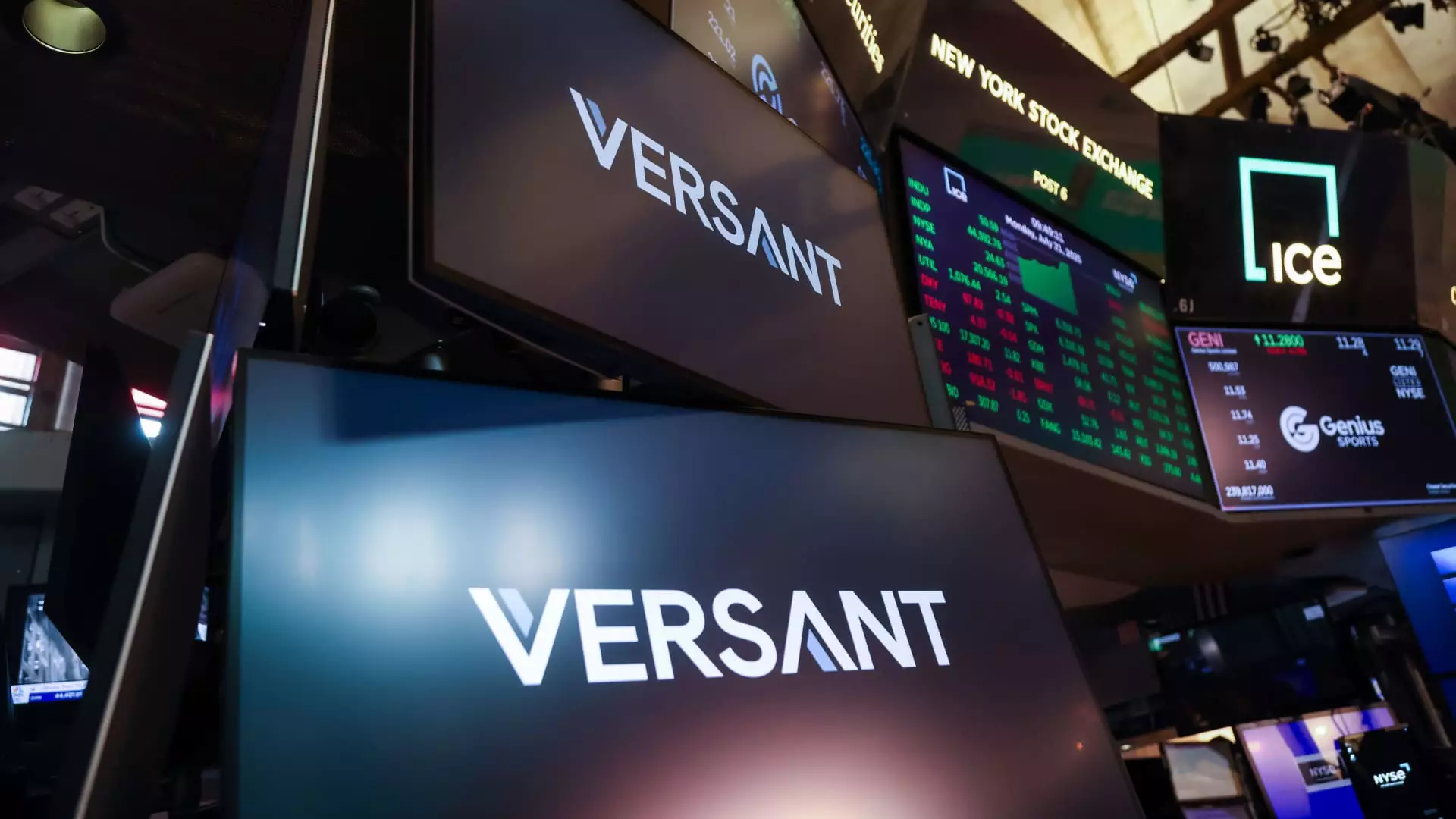The recent announcement of Versant’s board members marks more than just a corporate restructuring; it signals a pivotal moment that could redefine the landscape of American media. This move, orchestrated by Comcast, aims to carve out a new entity that would oversee NBCUniversal’s cable networks along with a diverse portfolio of digital assets. At the surface, this appears to be a strategic maneuver toward independence, but beneath the surface lies a complex web of influence, control, and the potential erosion of journalistic integrity. This spinoff, set to complete by the end of the year, raises critical questions about whether this separation boosts true editorial independence or merely refocuses corporate power under a new banner.
Who Holds the Reins? A Powerful, Yet Controversial, Cast of Board Members
The composition of Versant’s board reveals a carefully curated blend of industry veterans from media, finance, technology, and even arts. Mark Lazarus, the CEO, brings experience from the highest echelons of NBCUniversal, but his leadership raises concerns about continuity with past corporate priorities rather than a new, independent vision. David Novak, the prospective chairman, has a track record rooted in corporate management and marketing, notably from Yum Brands. His involvement hints at a focus on brand value and consumer engagement, but critics may worry about brand-driven overreach overshadowing journalistic independence.
Other board members—including Rebecca Campbell from Disney, Michael Conway from Starbucks, and Gerald Hassell of the Bank of New York Mellon—are emblematic of a broader corporate ethos. Their backgrounds emphasize operational excellence, financial acumen, and global content strategies, yet they lack direct experience in journalism or content creation. This could signal a prioritization of business metrics over the foundational journalistic values that underpin trust and integrity in media. More troubling is the potential for these corporate influences to steer content toward profitability at the expense of public service.
The Promise of Independence or a Strategic Facade?
While Versant’s leadership claims this move is about establishing a “leading independent media company,” skepticism persists. Is independence genuinely achievable when a new entity is spun out by a conglomerate with vested interests? Historically, such corporate separations often serve as strategic tools to safeguard or enhance shareholder value, rather than to promote media freedom. The involvement of individuals with backgrounds in finance, investment, and branding suggests that the primary goal may shift from journalistic excellence to maximizing asset value and market leverage.
Furthermore, the digital assets set to be housed under Versant—including Fandango, Rotten Tomatoes, and GolfNow—are deeply intertwined with consumer engagement and advertising revenues. This economic focus could influence content decisions, subtly steering away from critical journalism, investigative reporting, or content that might threaten corporate interests. A board dominated by industry insiders with little direct media production experience risks making decisions that prioritize revenue streams over public accountability.
Implications for Media Diversity and Public Discourse
The consolidation of media under corporate umbrellas has long been criticized for suppressing diverse voices and narrowing the spectrum of public discourse. The creation of Versant, if unchecked, could exacerbate this trend. The board’s composition, heavy with business and finance figures, suggests an emphasis on corporate metrics instead of fostering a culture of independent journalism or investigative integrity. This shift threatens to turn once-diverse media brands into profit-driven entities that may shy away from controversial or inconvenient truths.
The potential for the new spinoff to influence how cable networks like CNBC, MSNBC, and Oxygen operate is profound. These platforms have historically played essential roles in shaping public opinion—yet their future under Versant’s ownership might favor content that aligns with corporate interests, avoiding risks that could challenge the parent company’s broader strategic ambitions. In essence, the move might dilute the watchdog role these outlets have historically played, reducing the media ecosystem’s resilience against corporate and political influences.
Certainly, the idea of a more nimble, independent media company has its appeal, but the historical track record suggests caution. This spinoff appears more as a strategic rebranding than a genuine step toward media independence. The board members, with their rootedness in corporate finance, branding, and consumer engagement, underscore a shift that could prioritize shareholder value over journalistic credibility. As these developments unfold, it is critical for policymakers, media watchdogs, and the public to scrutinize whether Versant’s independence is substantive or superficial. Media shouldn’t merely be assets on a corporate ledger; they must remain as pillars of a functioning democracy, committed to transparency, accountability, and truth. If the watchwords are profit above all, then the future of independent journalism—once seen as a cornerstone of democracy—may be at risk.

